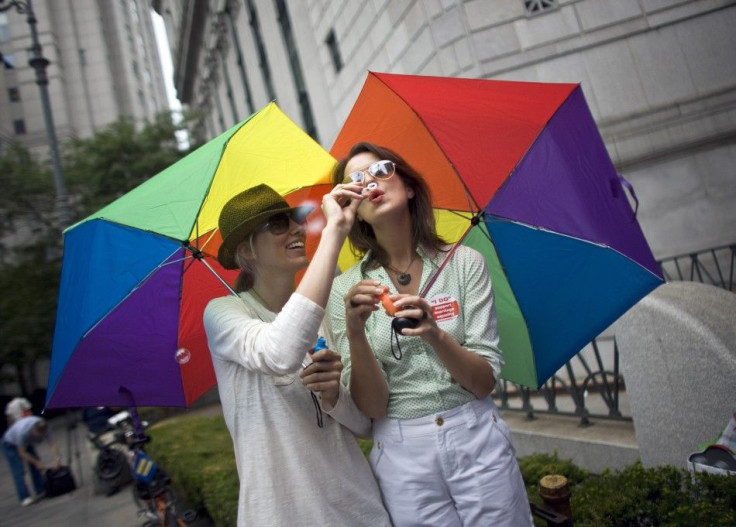Med Schools Fail At Teaching Gay, Lesbian Health to Students

Individuals of the Lesbian, Gay, Bisexual, and Transgendered (LGBT) community represent a growing portion of the world's population, yet when it comes to caring for these individuals, medical training may fall short.
The average medical student spends roughly five to seven hours in medical school learning about the health-care needs of the lesbian, gay, bisexual and transgendered community, despite evidence of their unique health needs and risks, according to the study published Wednesday in the Journal of the American Medical Association.
Lesbian, gay, bisexual and transgender (LGBT) individuals have specific health and health care needs, wrote Dr. Juno Obedin-Maliver of Stanford University School of Medicine.
Researchers, who surveyed a number of deans from nearly 150 American and Canadian medical schools, found wide variation in the amount, content and quality of instruction on LGBT health.
It's great that a lot of schools are starting to teach these topics, said Mitchell Lunn, MD, lead author of the study and an internal medicine resident at Brigham and Women's Hospital/Harvard Medical School who was a medical student at Stanford when the study began.
A third of the schools had no LGBT content during their clinical years, about seven percent had no content during preclinical years, and about four percent had no content in any of their years, study authors noted.
But the conversation needs to go deeper. We heard from the deans that a lot of these important LGBT health topics are completely off the radar screens of many medical schools, Lunn added.
Results also showed that 33.3 percent of medical schools that responded spent zero hours on LGBT health-related content during the students' clinical training.
While the amount of time spent on training students was found to be extremely low, almost 97 percent of medical students are being taught to ask patients if they have sex with men, women or both when obtaining a sexual history, a positive step toward improved care, the researchers said.
Compared to their peers who are not LGBT, this group is more likely to face barriers accessing appropriate medical care, which may create or increase existing disparities, Obedin-Maliver added.
The study was conducted by members of the Lesbian, Gay, Bisexual and Transgender Medical Education Research Group, which was founded at Stanford's School of Medicine in 2007.
This is really about visibility and partnering with other organizations to get a better sense of how we can train a next generation of providers to be really sensitive and competent in meeting the needs of the LGBT community, said Obedin-Maliver, a Stanford graduate now doing an ob/gyn residency at the University of California-San Francisco.
A high rate of response from the deans — 85 percent — indicated a growing interest in the topic, researchers said.
These issues are something that every health-care provider will encounter.
© Copyright IBTimes 2024. All rights reserved.





















